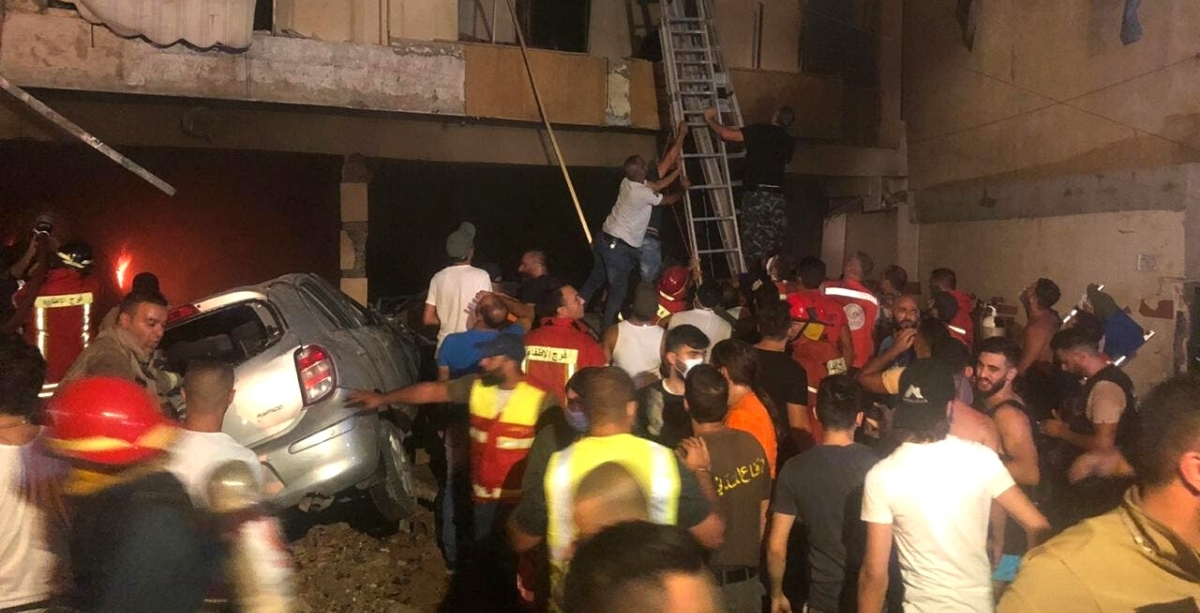Since the fuel crisis started last year, the average Lebanese citizen has found himself/herself struggling to find an open gas station and waiting in long lines to fill their car.
And things are getting worse.
Open gas stations have decreased and lines got longer in the past few months as the Lebanese Central Bank struggles to find dollars to import fuel.
To avoid the hopelessness that arises from finding a gas station and the endless lines, people in Lebanon have started filling cans and gallons with fuel and storing them in houses, cars, basements, and wells. Yes, wells.
Just this week, on Friday, a unit of the Internal Security Forces raided a house in Wadi Jilo in South Lebanon that was storing 40,000 liters of fuel in a well made for water storage.
For reference, each gallon contains 10 liters, so the owner of the house was storing 4,000 gallons of fuel in a very tight, very warm well.
Despite the constant warnings by the authorities, people have been ignoring the high danger to which they are exposing themselves, their families, and their surrounding.
This storage of fuel cans and gallons is extremely unsafe, dangerous, and poses a threat not only to the owner of the cans but also to the neighbors and people passing by.
If the lid is not closed tightly enough, the fumes from the can are able to escape. When they accumulate and become well concentrated, any source of heat, including sunlight or even a tiny spark, can ignite them.
It is enough for one can to ignite for all the other cans to be set on fire, and this might lead to an explosion. In other words, they are ticking time bombs.
Certainly, the ignition of thousands of stored cans can lead to devastating human and material losses. The impact of what people are doing to “cheat the system” can be devastating.

This was in full effect last week when a car parked in a parking lot of the Beirut Airport caught on fire on June 17th.
Gallons of gasoline stored inside the car ignited due to the very high temperature inside. The fire that ensued ended up spreading to 3 other nearby cars. Luckily, it only resulted in material damages.
Last year, an explosion happened in Tareek El Jdideh also due to the unsafe storage of a colossal quantity of fuel. Human casualties resulted from that explosion.
These incidents keep occurring across Lebanon with people desperate to fill their cars with gasoline to commute, and this issue does not seem to be going anywhere anytime soon.
The news that fuel imports will be financed at the 3,900 LBP exchange rate is probably going to push people into buying and storing more gallons these days so that they benefit from the current exchange rate.

















